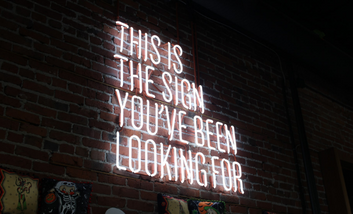On this blog, we want to make the complex world of tech digestible for everyone! So, let’s a look at why Apple wanted to remove outdated apps and the controversy surrounding their decision.
Something we talk about a lot is that developing an app doesn’t end when it’s released. Apps often require maintenance and updates for a wide variety of reasons. Apple’s recent push to remove outdated apps from the App Store is a big reminder of this.
However, it is controversial amongst developers. Let’s take a look at recent developer complaints.
Apple’s App Improvement Notice
Apple sent some developers an email entitled “App Improvement Notice” last year, The company warned developers that they will remove apps that haven’t been updated recently.
Indie game developer Protopop Games shared a screenshot of the email Apple sent them. It reads:
This app has not been updated in a significant amount of time and is scheduled to be removed from sale in 30 days. No action in required for the app to remain available to users who have already downloaded the app.
The notice said that users had 30 days to update their app and submit it for review, so it would not be removed. However, if they did not do this, their app would be deleted from the store.
The Pros Of Removing Outdated Apps
One could argue that most apps need regular updates. For one, the devices that they run on are constantly updating and changing.
For example, imagine that you found an original iPhone from 2007 that still works. How well do you think trying to run today’s apps on it would go?
Updates mean that apps work better on newer devices. In fact, having most developers update their apps occasionally with Apple’s latest APIs would probably be a solid practice.
However, this may not be a practice that can be applied to every app.
The Cons
For one, Apple sprung this on developers at random. Also, it was not entirely clear what the rules were. When are apps considered too old exactly? No one knew.
Apple even deleted some indie developers’ games with no warning. They didn’t give them a chance to update them. Of course, this created controversy and a number of unhappy small or indie devs.
According to the App Store Improvements Page at that time:
To make it easier for customers to find great apps that fit their needs, we want to ensure that apps available on the App Store are functional and up-to-date. We are implementing an ongoing process of evaluating apps, removing apps that no longer function as intended, don’t follow current review guidelines, or are outdated.
Most apps require updates over time. However, some indie game developers do release their games as complete products.
Also, Apple did not made it clear when this page was updated. Developers didn’t know how often they would need to update their apps to stay compliant either.
Complaints from Devs
Protopop Games tweeted:
I feel sick. Apple just sent me an email saying they're removing my free game Motivoto because its more than 2 years old.
— Protopop Games | Solo Dev (@protopop) April 23, 2022
It's part of their App improvement system.
This is not cool. Console games from 2000 are still available for sale.
This is an unfair barrier to indie devs. pic.twitter.com/7XNcLfiEcR
Motivoto is a free and simple puzzle game that has no microtransactions. It still works. Should it be deleted just because it hasn’t been updated?
Experimental game creator Emilia Lazer-Walker shared an incredibly interesting Twitter thread. In her genre of app development, demanding constant updates simply doesn’t make sense.
She says that it simply “isn’t viable” to spend time updating decade-old complete games that still function. She criticizes Apple for arbitrarily deciding that anything that isn’t brand new is “gauche,” or not cool.
It is also important to keep in mind that updating old games may ruin them entirely.
Devs Don’t Have A Lot Of Options
If indie game developers did decide to leave Apple, they would not really have anywhere to go.
For one, these games are often more like complete works of art than the money-generating powerhouses from corporate game studios that app stores would miss. And, for another, Google is not much kinder to indie developers.
While there are other app stores out there, none of them really have the reach of Apple or Google. While Apple is more popular in places like the US and Japan, Google is truly the world’s app store.
On April 6th 2021, Google released this policy change, which became effective on November 1, 2022:
To provide users with a safe and secure experience, we are expanding on Google Play’s target API level requirements to include existing apps that aren’t updated.
Apps that don’t target an API level within two years of the latest major Android version release will not be available on Google Play to new users whose devices run the latest versions of Android. Developers can request a six-month extension if more time for migration is needed.
Unlike Apple, Google gave months of notice and clear rules. However, the result is more or less the same.
Google pulls any apps that have not been updated to be compatible within 2 years of the latest Android release. They do this regardless of whether the app still works or not.
This does raise some questions. Is it a great idea to pull apps, possibly even apps that people like and use, en masse that work well just because they haven’t been updated recently?
The Implications Of These “Outdated Apps” Policies
Mobile gaming is an incredibly lucrative sector. Right now, it represents over half of the entire gaming market. Experts say that it will continue to grow.
However, gaming is also a place of innovation and vast cultural significance. Games can reflect important points in time as well as just being fun things that people enjoy.
Some feel that these moves by Apple and Google reflect that they see no artistic merit in games.
The issues of this policy expand past gaming. Another dev said that Apple removed his app, which had been specially made to cater to the visually impaired because it hadn’t been updated in two years. However, an app he hadn’t updated in seven years was still live.
One constant complaint against Apple is that they apply policies randomly and unevenly. Critics say that they don’t seem to think about how their decisions affect the people who use their platforms.
Final Thoughts on Art Vs Outdated Apps
In most cases, regularly updating apps is an important part of their life cycle. As technology and user needs change, in general, apps need to adapt.
However, indie games are different. These are not utility apps meant to serve a specific purpose. They are more like works of art. They are also often the product of a lot of hard work, but limited time and resources.
As apps become increasingly interwoven into our daily lives and culture, it makes sense that they would be powerful artistic mediums as well. Art is something that people naturally pursue with whatever tools they have available.
These policy changes raise some interesting questions. Why don’t we consider apps to be artistic creations or cultural touchstones?
Of course, not every app that’s released is a piece of art. Many are utility apps or supplement apps. However, apps with artistic merit definitely do exist. Should we not be open to having that conversation?
Also, if an app works fine, should it be deleted just because it’s deemed too old? Is forcing devs whose apps work perfectly to update them just to meet requirements efficient or necessary?
As the Apple Store is vast and contains millions of apps, it is likely difficult (and maybe impossible) to create perfectly equitable guidelines, where nothing slips through the cracks.
What do you think? Comment below.
Since 2009, we have helped create 350+ next-generation apps for startups, Fortune 500s, growing businesses, and non-profits from around the globe. Think Partner, Not Agency.
Find us on social at #MakeItApp’n®

















